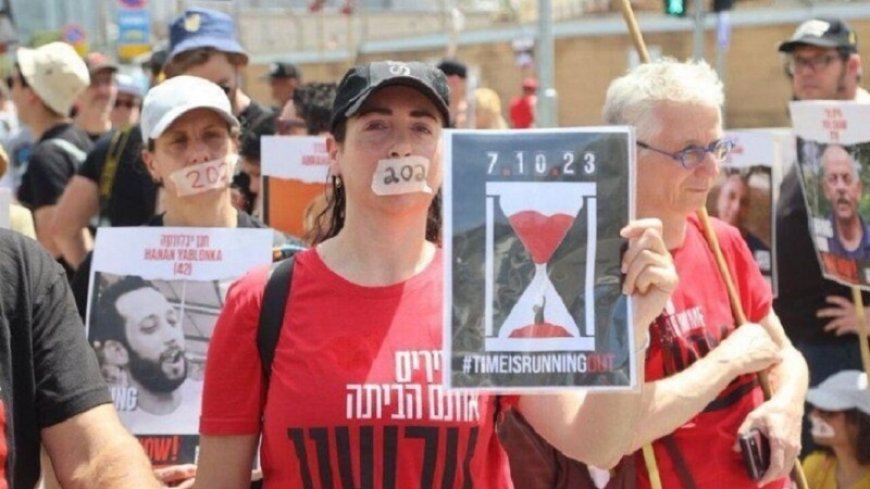The protests have been spurred by growing dissatisfaction over the government's failure to secure a deal for the release of Israeli prisoners held by Palestinian groups. Demonstrators in Ashkelon had earlier echoed similar sentiments, demanding an agreement with the Palestinian resistance to free captives.The families of the Israeli prisoners have been vocal, emphasizing that the ongoing conflict would result in further casualties among both prisoners and soldiers. They urged the government to prioritize negotiations for a prisoner exchange to prevent more deaths.
Starting Saturday night, the protests in Tel Aviv have seen significant participation, with families of deceased soldiers and prisoners captured in the Gaza Strip joining the calls for a ceasefire. According to the Israel Radio and Television Organization, these families are advocating for an end to hostilities as part of a broader strategy to secure the release of Israeli prisoners.
Prime Minister Netanyahu's firm opposition to a ceasefire in Gaza has been a central issue for the protesters. His stance has effectively blocked the possibility of reaching an agreement that would see the exchange of Zionist prisoners for Palestinian detainees held in Israeli prisons. The situation has been exacerbated by recent bombings in Gaza, which have resulted in the deaths of several Israeli prisoners, intensifying public outrage.
In addition to the primary demands for a prisoner exchange, the demonstrators are also calling for comprehensive political reform and accountability within the government. The escalating protests reflect deep-seated frustrations with Netanyahu's administration and its handling of the ongoing conflict with Palestinian groups.
As the demonstrations continue, they underscore the increasing pressure on Netanyahu's government to address the concerns of its citizens and find a viable path to peace and stability. The international community remains watchful, recognizing the potential implications for regional security and the broader Middle East peace process.














































